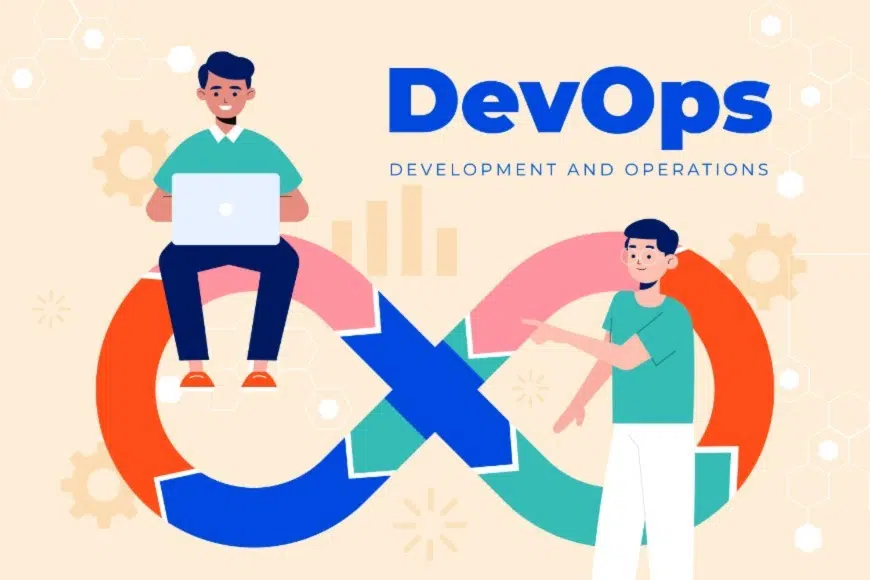One of the novel practices for effective implementation of digital transformation in the Industry 4.0 context is DevOps. In an industrial landscape, it refers to the combined efforts of the development(Dev) and Operations(Ops) teams in creating effective strategies that keep the company abreast of the technological, especially the digital trends.
Why is DevOps important?
Due to increased global competition and unexpected economic challenges, oil and gas companies are experiencing a strong need for digital transformation. Over the last decade, many organizations have reaped tremendous benefits by implementing DevOps in their business strategies. The positive results have encouraged the industry to incorporate software-driven innovations to improve productivity and achieve newer heights without causing significant disruptions to the existing business model.
In this scenario, DevOps plays a crucial role in helping industries roll up their manufacturing software faster because it:
- Promotes Automation:DevOps is not just a technology. It is a concept that leverages tools and processes such as Continuous Integration and Continuous Delivery (CI/CD), real-time monitoring, incident response systems, and collaboration platforms. It promotes automation and introduces new tools for creating controllable iterations that drive high productivity with accurate results.
- Optimizes IT Infrastructure:DevOps synchronizes the communication between the hardware and software components in the IIoT setup. It ensures proactive, smooth, and efficient operations at various levels and help achieve operational excellence that is predictable and measurable against intended outcomes and goals.
- Improves Operational Stability:By applying DevOps practices systematically, oil and gas businesses can experience an incrimporved hydrocarbon recovery, better safety across the production plant, and enhanced overall operational stability. This approach relays effective solutions for all the connected operations until the endpoint.
Digital Transformation in the Oil and Gas Industry with DevOps
The urgency for digital transformation in business models of the oil and gas industry is on the rise. DevOps is one of the primary facilitators in helping companies increase their digital maturity and reap benefits by implementing the most appropriate technologies and processes across the business chain.
Here’s how DevOps helps O&G companies:
- Identifies patterns in new revenue streams and gauges the maximum potential of digitalization.
- Facilitates implementation of best IIoT practices to achieve condition-based performance that drives maximum efficiency of their IT and plant infrastructure.
- Streamlines a hybrid operational model that promotes agile manufacturing principles and practices.
- Assists companies through their journey of experimentation with digital transformation through continuous improvement and reliable transition.
Why is DevOps Better Than Agile?
The decision-makers of Oil & Gas companies are eager to deploy practices that bring fruitful digital transformation to their organizations. Often, it is hard to choose from the two most popular enterprise practices such as DevOps and Agile. This dilemma is mainly because both methodologies focus on accurate results in the most efficient manner possible.
According to recent industry trends, the DevOps market is expected to grow at a CAGR rate of 22.9%, signaling a greater adoption rate than Agile. Let us understand why oil and gas companies prefer DevOps over Agile in Industry 4.0.
| Agile | DevOps |
|---|---|
| 1.Focuses on software development. | 1.Focusses on fast paced and effective end-to-end business solutions. |
| 2.Aligns development processes with customer needs at all stages. | 2. Promotes continuous testing and delivery of products. Identifies glitches before they can cause massive disruption to the company’s operations. |
| 3.The development team works in incremental spirits for software delivery, deployment, and maintenance. Operations teams work individually. | 3.Promotes a healthy collaboration between teams across various departments to deliver error-free software to achieve total safety in the oil and gas setup. |
| 4.Core values are: Individuals & Interactions, Working Software, Customer Collaboration, and Responding to Change. | 4.Core values are: Systems Thinking, Adopt & Promote Feedback Loops, Continuous Experimentation & Learning. |
Benefits of DevOps for Industry CIOs
Digitalization in the oil and gas industry is highly data-driven. Also, it constantly faces uncertainties due to fluctuations in global commodity prices, pressure to reduce carbon emissions and reliance on renewable alternatives. To overcome such challenges through an impactful digital transformation, the CIOs don multiple roles like a technical architect, solution expert, visionary, innovator, and purposeful technology provider to the company.
The blended business model of development and operations through DevOps helps CIOs create a fruitful roadmap toward a true digital transformation. Here is how DevOps drives such a transformation :
- Fosters transparent and collaborative teamwork in creating quality software that ensures efficiency, productivity, and safety.
- Identifies and implements the most appropriate automation technology leveraging the best possible output from every department in the organization. Empowers CIOs with the capability to set up IT infrastructure that withstands constant changes amid continuous delivery.
- Enhances product quality by eliminating bottlenecks and errors.
- Introduces team flexibility and agility for achieving the common goal
- Enables the CIOs to adopt futuristic technology and processes to develop sustainable business plans.
Conclusion
The oil and gas industry is one of the most rapid embracers of new-age technologies. With more companies leveraging the software-hardware collaboration that IR4.0 offers, there is a dire need to deploy the best DevOps practices to reap its benefits.
Utthunga has the best automation tools and DevOps consulting services that cater to the oil and gas industry. Reach out to us at [email protected] to stride ahead of the competition by leveraging the power of DevOps.

